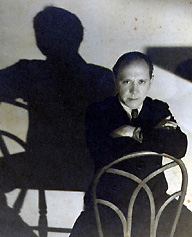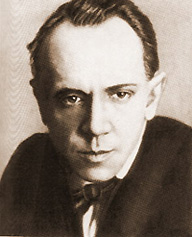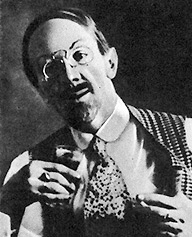
Michael Chekhov for the actor (Chekhov technique of acting)
“The essence of our profession… is to give. What is it that we in the theater give? … We give our body, voice, feelings, will, imagination – we give a form of pulsating art to life itself; we give it to our characters and we give it to our audiences. Nothing, absolutely nothing remains for us save the pleasure of having given pleasure. And yet it is only by this miraculous process that our love grows and our talent is fulfilled and replenished.” - Michael Chekhov
Ten Week Intensive
Michael Chekhov Technique for actors:
Chekhov on Chekhov ©
Anton and Michael
The text: The Three sisters
Application of: Michael Chekhov Technique
Cost: $300.00
Early registration discount: $50.00
This class will explore Michael Chekhov’s "psycho-physical" approach to acting, through the basic principles and exercises outlined in Chekhov’s book “To the Actor”, including psycho/physical exercises, character work and ensemble improvisation. Each class begins with a warm-up specifically designed to develop the organic connection between the actor's inner life, creative imagination and expressive body. Through the rigorous practice of Chekhov’s core exercises students will explore; Radiating and Receiving, Archetypes, Imaginary Centers, Imaginary body, Character Atmospheres, Overall scenic Atmospheres, Qualities of Movement, Imaginary Palace, and Psychological Gesture, along with on camera adjustments and more… Chekhov's technique consists of a wide variety effective acting tools, which can inspire endless possibilities for enlarging the actor's creativity and artistic expression - the actor can then bring this sensibility to the creation of a character, exploration of the text, and inspired performance.
Quotes from his students:
“Michael Chekhov brings to the actor a far greater insight into himself and his character. He enables the actor to approach any role with new skill and ease.” - Gregory Peck
“As Michael's pupil, I learned more than acting... Every time he spoke, the world seemed to become bigger and more exciting... Acting became important... an art that increased your life and mind. Acting became more than a profession to me. It became sort of a religion.” - Marilyn Monroe
Michael Chekhov (1891 - 1955) was the nephew of the playwright Anton Chekhov and was widely recognized as one of the greatest actors of the 20th century. He was considered by Stanislavsky to be his most brilliant student. Indeed, Stanislavsky once said that if anyone wanted to know what he was teaching, they should go and see what Michael Chekhov was doing. Chekhov had a great talent for characterization and was a keen observer of the creative process. At the Moscow Art Theatre, the collaboration between Stanislavsky, Vachtangov, Meyerhold and Michael Chekhov led to a theater that was bold, expressive and imaginative. In their work they searched for objective principles that would lead to inspired acting. This investigation led Michael Chekhov to develop his psycho - physical acting technique, incorporating imagination and body. Chekhov was warned to leave Russia in 1928 at the height of his acting and directing career; his productions were too experimental for the Soviets and were labeled "alien and reactionary." He then spent eight years in Europe, acting, directing, and teaching, but was greatly handicapped by language, political factions, and the threat of war. In 1936, Beatrice Straight invited him to establish the Chekhov Theatre Studio, a training program for a company of actors at Dartington Hall in England. In 1939, the threat of war with Germany caused the group to relocate to Ridgefield, Connecticut until it was forced to disband because it lost its male members to the draft. 1942 Michael Chekhov was invited to Hollywood, where he became an acting coach to the stars, acted in many films, published his book, "To the Actor," and taught a group called The Drama Society. Prominent actors in Hollywood who studied with him were: Gary Cooper, Marilyn Monroe, Gregory Peck, Patricia Neal, Clint Eastwood, Anthony Quinn, Ingrid Bergman, Jack Palance, Lloyd Bridges, and Yul Brynner (who wrote the preface to Chekhov's "To the Actor.") Michael Chekhov died in Hollywood, California in 1955, before his work became widely known.
|



